Lipitz Public Health Policy Faculty Awards
The Institute for Health and Social Policy is proud to announce the recipients of the Lipitz Public Health Policy Faculty Awards. The Lipitz awards provide financial resources in support of innovative, timely, and applied public health policy projects led by faculty at the Bloomberg School of Public Health. The Lipitz Public Health Policy Awards have been made possible thanks to a generous gift from the Lipitz Public Health Policy Fund.
2024-2025 Cycle
Recipients from the March 30th Application Cycle

Lauren Czaplicki, PhD, MPH, Associate Scientist, Health Behavior & Society
Proposal Summary: Black or African American cisgender women have disproportionately higher rates of new HIV infections compared to White women in the US. Pre-exposure prophylaxis (PrEP) for HIV can effectively prevent HIV during sex, but less than 2% of PrEP eligible Black women who could benefit from PrEP were prescribed PrEP. Further, marketing for PrEP has focused almost exclusively on LGBTQ+ communities, which may reduce the relevance of PrEP to cisgender, heterosexual communities. In the proposed research, we aim to explore what features of a PrEP marketing campaign would make PrEP relevant to Black women using group concept mapping (to generate a cluster map of relevant marketing features) and follow-up in-depth interviews (to explore how and why these features would be most effective in marketing materials). We will partner with a Baltimore organization, STAR, to triangulate findings and make final recommendations on a marketing campaign tailored specifically to increase PrEP relevance among Black women in Baltimore.

Liesl Nydegger, PhD, MPH, CHES, Assistant Professor, Health Behavior & Society
Proposal Summary: Black or African American cisgender women have disproportionately higher rates of new HIV infections compared to White women in the US. Pre-exposure prophylaxis (PrEP) for HIV can effectively prevent HIV during sex, but less than 2% of PrEP eligible Black women who could benefit from PrEP were prescribed PrEP. Further, marketing for PrEP has focused almost exclusively on LGBTQ+ communities, which may reduce the relevance of PrEP to cisgender, heterosexual communities. In the proposed research, we aim to explore what features of a PrEP marketing campaign would make PrEP relevant to Black women using group concept mapping (to generate a cluster map of relevant marketing features) and follow-up in-depth interviews (to explore how and why these features would be most effective in marketing materials). We will partner with a Baltimore organization, STAR, to triangulate findings and make final recommendations on a marketing campaign tailored specifically to increase PrEP relevance among Black women in Baltimore.
2023-2024 Cycle
Recipient from the March 30 Application Cycle

Jennifer Brown, PhD, MPH, Health, Behavior & Society
Summary: CA banned menthol cigarettes, effective December 2022. Shortly after, some tobacco companies brought “non-menthol” cigarettes to market in CA and MA which implemented a ban on menthol cigarettes in June 2020. These new “non-menthol” cigarettes are packaged almost identically to the menthol packs on the market pre-menthol ban and contain a compound that mimics the sensory effects of menthol, but without the characteristic minty smell and flavor. This study will examine consumer perceptions, including perceived flavor, smell, sensations, appeal, harm, and intention to try, of newly marketed “non-menthol” cigarettes in CA and MA. Findings will inform advocacy efforts to enforce the bans on flavored cigarettes in CA and MA and regulatory action to include these products in future bans on menthol cigarettes in the US.
Recipient from the Nov 30 Application Cycle

Johnathon Ehsani, PhD, Health Policy Management
Summary: In this proposal, Dr. Johnathon Ehsani will partner with Administrator Daniel Cooke from Washington State Department of Licensing to conduct a policy forum to advance the concept of Performance Based Graduated Driver Licensing Policy in Washington State. Based on the outcomes of the policy forum, Administrator Cooke and Dr. Ehsani will submit recommendations to Senator Marko Liias, Chair of the Transportation Committee in Washington State. Senator Liias and potentially other legislators may then introduce the legislative proposal(s) resulting from this process in upcoming sessions of the Washington Legislative Assembly.
2022-2023 Cycle
Recipient from the July 30 Application Cycle
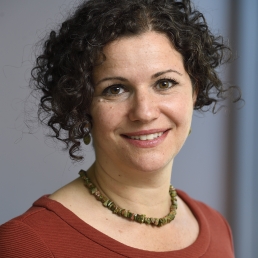
Julia Wolfson, PhD, International Health
Summary: The aim of this project is to assess SNAP participant support for policy proposals to create healthier in-person and online retail environments in SNAP-authorized retailers
Recipient from the March 30 Application Cycle

Adam Koon, PhD, International Health
Summary: As settlement terms with opioid manufacturers and suppliers solidify, state policymakers are designing different channels for abatement revenue. While many plans appear to be inspired by evidence-based best practices, the details of state settlement allocations are increasingly shaped by local politics. This research seeks to analyze these politics in greater detail. To do this, we will use well-established qualitative methods to understand 1) the legislative process for establishing Opioids Abatements Funds/Trusts, 2) the design of governance arrangements to ensure their accountability, and 3) the forces that cause settlements revenue to deviate from the recommended 70%-Fund, 15%-state, 15%-local government allocation template. This research will be co-produced by staff working on opioid state settlement policy at a non-profit (Shatterproof) and academic institution (Johns Hopkins University). A central component of this endeavor is to establish a regular platform for sharing these findings with policymakers, advocates, and practitioners who are actively involved in state-level deliberations. In this way, this research is uniquely positioned to affect real-time policy choices and help strengthen local responses to the opioid crisis.
2021-2022 Cycle
Recipient from the Nov 30 Application Cycle

Beth Resnick, DrPH, Health Policy and Management
Summary: This project builds on prior work to provide timely and needed data and evidence to protect and support the state and local public health workforce from violence, threats and harassment as well as a roll back of public health authority. Without any institutionalized data collection or tracking mechanisms in place to monitor the scope and nature of violence, threats, and harassment of the public health workforce, there is a critical need for this research. Translating this research to policy is urgent to protect and support the public health workforce and assure needed public health authority to protect the health of the nation – just when it is needed most during this pandemic - and to assure adequate protection in other public health emergencies going forward.

Paulani Mui, MPH, Health Policy and Management
Summary: This project builds on prior work to provide timely and needed data and evidence to protect and support the state and local public health workforce from violence, threats and harassment as well as a roll back of public health authority. Without any institutionalized data collection or tracking mechanisms in place to monitor the scope and nature of violence, threats, and harassment of the public health workforce, there is a critical need for this research. Translating this research to policy is urgent to protect and support the public health workforce and assure needed public health authority to protect the health of the nation – just when it is needed most during this pandemic - and to assure adequate protection in other public health emergencies going forward.
2020 – 2021 Cycle
Recipient from the Nov 30 Application Cycle

Beth Resnick, DrPH, Health Policy and Management
Summary: This project seeks to provide timely and much needed policy guidance and technical assistance to help protect state and local health officials from threats and harassment when working to protect the public’s health. This work is particularly relevant now during the current COVID-19 pandemic as well as going forward to protect health officials during future public health emergencies and outbreaks.

Paulani Mui, MPH, Health Policy and Management
Summary: This project seeks to provide timely and much needed policy guidance and technical assistance to help protect state and local health officials from threats and harassment when working to protect the public’s health. This work is particularly relevant now during the current COVID-19 pandemic as well as going forward to protect health officials during future public health emergencies and outbreaks.
2019 – 2020 Cycle
Recipient from the Nov 30 Application Cycle

Caleb Alexander, MD, Department of Epidemiology
Summary: Prescription opioid analgesics are an important component of clinical practice and pain management; however, they are also addictive and prone to non-medical use. While the number and rate of opioid prescriptions nationally has decreased from its peak in 2012, prescribing rates remain very high in certain regions of the country. Further, there are over 2 million individuals in the United States with past-year opioid use disorder, or “addiction,” while as many as 3 million additional individuals have a lifetime history of opioid use disorder. In this context, it is vital to understand physician attitudes, beliefs, and knowledge regarding the opioid epidemic, including primary care physicians’ readiness to identify and treat individuals with opioid use disorder. We propose a nationally representative, US mail survey of practicing primary care physicians. Our research group conducted a similar survey in 2013 which addressed policy-relevant questions and yielded multiple impactful analyses, peer-reviewed publications and other opportunities for dissemination and implementation. Our currently proposed work will build upon the previous survey by facilitating comparisons over time and informing changes in policy and practice to mitigate the opioid epidemic.
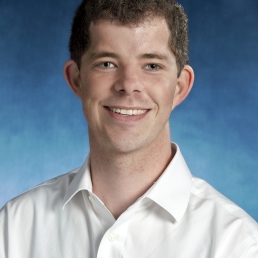
Philip R. McNab, PhD, MPH, Health, Behavior & Society
Summary: In partnership with Scott LeRoy, Caroline County Health Officer, the project will inform better transportation policies for people who use drugs (PWUD) in Maryland. Transportation is a key healthcare barrier for many populations; it contributes to missed medical appointments and delayed seeking of healthcare. Our recent study, the Statewide Assessment of Drug Use and Services (SEADS) project, showed that transportation is also a prominent and underappreciated challenge for PWUD as they aim to access supportive services including drug treatment, particularly in rural areas of Maryland. There is a pressing need to better understand the intricacies of existing transportation barriers for PWUD and to translate these challenges into innovative policy solutions. The project aims to: (1) analyze SEADS data to explore the benefits and limitations of Medical Assistance Transportation; (2) identify barriers and facilitators to transportation to services for PWUD; (3) convene a workshop with key stakeholders to translate findings into recommendations for policies in Maryland.

Danielle German, PhD, MPH, Health, Behavior & Society
Summary: In partnership with Scott LeRoy, Caroline County Health Officer, the project will inform better transportation policies for people who use drugs (PWUD) in Maryland. Transportation is a key healthcare barrier for many populations; it contributes to missed medical appointments and delayed seeking of healthcare. Our recent study, the Statewide Assessment of Drug Use and Services (SEADS) project, showed that transportation is also a prominent and underappreciated challenge for PWUD as they aim to access supportive services including drug treatment, particularly in rural areas of Maryland. There is a pressing need to better understand the intricacies of existing transportation barriers for PWUD and to translate these challenges into innovative policy solutions. The project aims to: (1) analyze SEADS data to explore the benefits and limitations of Medical Assistance Transportation; (2) identify barriers and facilitators to transportation to services for PWUD; (3) convene a workshop with key stakeholders to translate findings into recommendations for policies in Maryland.
Recipient from the July 30 Application Cycle

Nina M. Martin, PhD, Department of International Health
Summary: The poorest zone in all of Maryland, with the highest rate of youth living in poverty, is located in Southwest Baltimore in zip code 21223. This neighborhood is also a healthy food priority area, or food desert, which are neighborhoods that have poor access to healthy foods. To fill this need, The Food Project is a year-round after-school program that empowers youth (ages 8-21) in Southwest Baltimore with skills-building and mentoring in cooking, nutrition, restaurant skills, urban farming, and public health science. The youth of The Food Project, led by youth leaders Demonte Parker and Shea Jennings, want to be empowered with training and experiences in civic engagement and literacy to use Johns Hopkins University-funded public health research data (led by Assistant Scientist Dr. Nina M. Martin) to advocate for better resource allocation to Southwest Baltimore. In this proposal, Dr. Martin will partner with Director of Food Policy Holly Freishtat and Office of Planning and Food Policy Action Coalition leader Alice Huang to lead civic engagement and literacy trainings and experiences for these youth, as well as work collaboratively with the youth to translate public health data into policy.
2018 – 2019 Cycle
Recipient from the July 30 Application Cycle
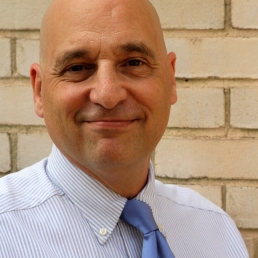
Paul A. Locke, MPH, JD, DrPH, Department of Environmental Health and Engineering
Summary: It is well documented that loss of housing among low-income families, and those facing financial crisis, leads to negative health consequences. Accordingly, interventions that prevent loss of housing have the potential to improve public health and welfare. In 2016, we were approached by an attorney at the Baltimore office of Maryland Legal Aid, who asked us to explore the relationship between companion animal relinquishment and loss of housing. Her anecdotal observations led her to the conclusion that low income, and/or financially distressed families and individuals relinquish their companion animals shortly before eviction from their residences. To examine whether her conclusions were evidence-based, we obtained and analyzed data about companion animal relinquishment from the Baltimore Animal Rescue & Care Shelter (BARCs), carried out a literature review, and interviewed experts on housing and its relationship to public health and welfare. Our preliminary analyses support the hypothesis that in many cases, loss of housing leads to companion animal relinquishment, and that the point in time, and location, of relinquishment, creates an opportunity to intervene with legal services to prevent housing loss. We seek funding to (1) carry out a more detailed data analysis of companion animal relinquishment to refine this hypothesis; and (2) actively work with our community partners, Maryland Legal Aid and BARCs, to design intervention strategies that will bring legal tools to individuals in financial distress at the time of relinquishment so that housing loss will be avoided.
2017 – 2018 Cycle
Recipient from the March 30 Application Cycle

Keeve E. Nachman, PhD, MHS, Department of Environmental Health and Engineering
Summary: There is increasing awareness that participation in urban agriculture yields a variety of public health benefits, though less attention has been paid to the potential health risks faced by urban agriculture practitioners stemming from contact with chemical contaminants in city soils. While the Baltimore City Office of Sustainability (BOS) has attempted to address this problem by issuing general guidance for soil safety, it lacked contamination data specific to farms and gardens in the City that would support evidence-based exposure avoidance recommendations. Our ongoing work through the Safe Urban Harvests study is currently generating these data. We propose to use findings from the Safe Urban Harvests study to develop evidence-based recommendations to aid the BOS in revising the City’s urban agriculture soil safety policy. We also propose to create and distribute a collection of free, print and electronic informational resources to encourage the safe conduct of urban agriculture in a manner that promotes public health through reduction of soil contamination exposures among urban agriculture practitioners.
Recipient from the November 30 Application Cycle

Rupali J. Limaye, PhD, MPH, MA, Department of International Health
Summary: Nationally, approximately 25% of children between the ages of 19-35 months are not up-to-date with the recommended immunization schedule. Children enrolled in Medicaid are able to access routine immunization for free; however, children are frequently enrolled in Medicaid for only a short period of time, as data from other states suggest that parents face barriers related to Medicaid recertification and renewal that lead to disenrollment. In collaboration with the Baltimore City Health Department (BCHD), this study will explore, through in-depth interviews, parental and patient-level barriers related to Medicaid recertification and renewal and how these relate to immunization uptake. The findings of this study will address an important gap and may generate needed information that can be used by the BCHD to recommend policy change. To creatively display study findings, the results will be translated into vignettes that use infographics and data visualization to humanize the study findings and spur policy action.
Recipients from the July 30 Application Cycle
Beth McGinty, PhD, MS, Department of Health Policy and Management and Lainie Rutkow, JD, PhD, MPH, Department of Health Policy and Management
Summary: The proposed project is a partnership between Drs. McGinty and Rutkow and two external organizations: the National Association of Attorneys General (NAAG) and the Association of State and Territorial Health Officials (ASTHO). This research will involve conducting mixed methods case studies examining the implementation and outcomes of “pill mill” laws in Ohio and Tennessee. Through pill mill laws, states regulate pain clinics to prevent rogue clinics (“pill mills”) from issuing opioid prescriptions without medical indication. These laws are designed to reduce opioid overdoses but have not been rigorously evaluated. The proposed project will begin to fill this gap. Qualitative interviews will be conducted to characterize the implementation and enforcement of pill mill laws in Ohio and Tennessee and identify strategies, barriers, and facilitators that could inform implementation and enforcement in other states. Quantitative synthetic control analyses will also be conducted to evaluate pill mill laws’ effects on opioid overdose deaths. The external practice partners, NAAG and ASTHO, will assist with data collection and interpretation of findings, as well as assist with translating and disseminating findings for their constituent groups.
2016 – 2017 Cycle
Recipient from the March 30 Application Cycle
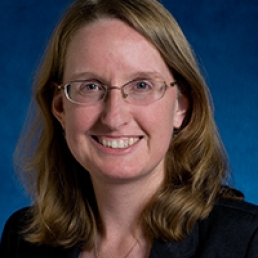
Meghan Davis, PhD Department of Environmental Health and Engineering
Summary: In collaboration with Fort Leonard Wood Army Installation, the Department of Defense Food and Nutrition Subcommittee, and Pulaski County Sheltered Workshop’s Farmers Market and Community Supported Agriculture (CSA), this research will use qualitative methods to evaluate barriers and facilitators to stakeholder participation in U.S. military community local direct farmer-to-consumer food activities, such as farmers’ markets CSA programs. Utilizing key informant interviews, focus groups, and stakeholder input, the research team—particularly postdoctoral fellow Dr. Camille Effler, herself a U.S. Army officer—will create recommendations for framing strategies, and create policy recommendations for military and non-military stakeholder groups. The participatory involvement of key stakeholders will drive development of potential framing strategies and policy recommendations to overcome barriers and leverage facilitators of military community participation in farmers’ markets and CSAs. Findings and strategy recommendations will be communicated to military and non-military stakeholders, and the scientific community. This study will provide a foundation for future research and implementation efforts to support the military food and nutrition environment to improve the health and readiness of service members, and secondarily to enhance current military efforts to foster collaboration and positive relationships between military installations and surrounding communities.
Recipient from the November 30 Application Cycle
Meghan Bridgid Moran, PhD, Department of Health, Behavior & Society
Summary: Advertising plays a large role in consumers' perceptions of tobacco product risk and related consumer behaviors. As such, the 2009 Family Smoking Prevention and Tobacco Control Act prohibits tobacco product advertising that is misleading or that makes unpermitted explicit or implicit reduced-risk claims, and gives FDA extensive authority to regulate tobacco product advertising. Although FDA has taken enforcement action against several tobacco manufacturers (the largest of which being SFNTC, the manufacturer of American Spirit cigarettes) use of descriptors "natural" and "additive-free", our research demonstrates that these companies have an arsenal of additional textual and visual tactics to communicate reduced risk. Despite this, there is no research examining the effects of such tactics on consumer risk perceptions and product purchase behavior. Such research is critical, as FDA relies on specific evidence to guide their regulatory action. Together with their policy partners, the team will enroll 6,000 participants in an online randomized controlled trial to test the effect of three common tactics that could signify reduced harm on consumer risk perceptions and purchase intentions. The evidence generated through this research will directly support future FDA regulatory decisions regarding use of such tactics in cigarette ads. The project team is confident that even with a new Administration, they will be able to disseminate their results in support of policy change, by submitting findings to FDA open dockets, public workshops and meetings.
Recipients from the July 30 Application Cycle
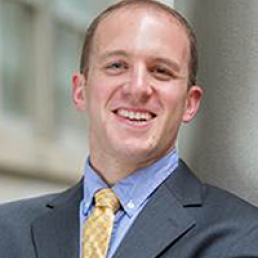
Brendan Saloner, PhD, Department of Health Policy and Management
Summary: We propose to generate timely and actionable evidence to inform current initiatives led by the US Department of Health and Human Services (HHS) to improve treatment for opioid use disorders under the Affordable Care Act (ACA). Partnering with Dr. Christopher Jones in the Division of Science Policy in the Office of the Assistant Secretary for Planning and Evaluation (ASPE) in HHS, the study team will provide the first-ever analysis of how Medicaid expansion under the ACA is affecting use of buprenorphine – a critical medication to treat opioid addiction. To do so, the team will use novel data from IMS Health, which contains anonymized, longitudinal, patient-level information for approximately 75% of patients prescribed opioids in four states (California, Maryland, Florida, and Texas) between 2012 and 2015. Thus, the team can examine utilization prior to and after the ACA in Medicaid-expanding states (California and Maryland) as well as non-expanding states (Florida and Texas), as well as quantify differences in utilization of buprenorphine across different geographic regions within these states, by linking the data with office locations of buprenorphine-prescribing physicians to characterize differences in areas with high versus low density of prescribing physicians (we have data for both at the level of ZIP codes). Research findings will culminate in briefings to policymaker and academic audiences and peer-reviewed publications, and will yield valuable insights to guide current federal regulatory and policy efforts to increase access to high-quality buprenorphine treatment.
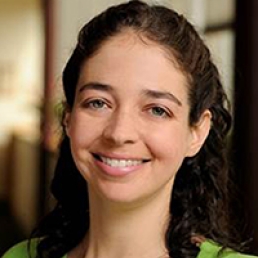
Lainie Rutkow, JD, PhD, MPH, Department of Health Policy and Management
Summary: As new threats from natural and human-made disasters emerge, policy-makers must routinely draft, revise, and/or retract the policies that govern a response. When these policies are implemented during or immediately after a disaster, lawsuits may arise for varied reasons. The Public Health Law Program (PHLP) within the U.S. Centers for Disease Control and Prevention routinely receives requests from state and local policy-makers regarding preparedness-related litigation. These policy-makers have asked for the creation and dissemination of products that will identify and synthesize litigation that has occurred due to emergency preparedness and response activities. Such an evidence base would allow policy-makers to understand which preparedness policies should be revisited and which types of policies and procedures have not been the subject of litigation. Working with colleagues from PHLP, the team will use standard legal epidemiology research methods to: 1) create a data set of federal and state-level litigation in which substantive issues concerning emergency preparedness arose; 2) conduct a content analysis of all identified litigation; and 3) translate and disseminate findings to state and local policy-makers, who are PHLP’s constituents.
2015 – 2016 Cycle
Recipient from the March 30 Application Cycle

Joel Gittelsohn, PhD, Department of International Health
Summary: By the end of 2017, implementation of the 2014 Farm Bill will significantly increase the depth of stock of healthy foods that retailers are required to carry if they accept SNAP benefits. These changes have the potential to dramatically increase healthy food access in low income communities. Yet, little is known about the challenges and opportunities that small store owners will face in attempting to implement these new requirements. Inadequate attention to these issues could mean small stores going out of business, leading to worsening food access and food insecurity in low income communities. Gittelsohn and his team will use a mixed methods approach to evaluate the readiness and challenges faced by store owners to adapt to these required stocking changes, including in-depth interviews with small store owners, and structured observations of food stocked in their stores to assess compliance with the new law. In collaboration with their partners, the Baltimore Food Policy Initiative and the Center for a Livable Future, they will use this information to generate recommendations and intervention strategies/materials to improve the readiness of small store owners for these changes.
Recipient from the November 30 Application Cycle

David Jernigan, PhD, Department of Health, Behavior and Society and Director for the Center on Alcohol Marketing and Youth
Summary: Baltimore has nearly double the number of alcohol outlets allowed by state standards and these are disproportionately concentrated in low-income, predominantly African American neighborhoods. The outlets are associated with increased likelihood of violent crime and exacerbate the level of trauma already experienced by these communities. This project would translate this research into public health practice in Baltimore City, partnering with City Councilman Nick Mosby and Strong City Baltimore to educate city officials and neighborhood associations in how to use planning and zoning procedures to increase community input into and control over the practices of alcohol outlets in target neighborhoods across the city. Through implementation of best practice in local regulation of alcohol outlets, the project will assist neighborhoods to identify, document and either modify the practices of or shut down problematic outlets, which should lead to decreased violence and improved outcomes for youth in these neighborhoods.
Recipients from the July 30 Application Cycle

Beth McGinty, PhD, Department of Health Policy and Management
Summary: In this proposal, McGinty will partner with Maryland Delegate Dan Morhaim, MD, to implement a conference and post-conference legislation development process designed to create evidence-based policy proposals to address addiction and drug-related violence in Maryland. Legislative proposal(s) resulting from this process in upcoming sessions of the Maryland General Assembly will be introduced. In addition, McGinty and Delegate Morhaim will conduct a mixed-methods evaluation of the research-policy translation process used. The results of this evaluation will contribute to the scholarly literature on the translation of research evidence into policy and directly inform future research translation efforts.
Click to learn more about the 2015 Harm Reduction Meeting and Policy Recommendations.

Joanna Cohen, PhD, Department of Health, Behavior & Society and Director, Institute for Global Tobacco Control
Summary: In order to reduce the uptake of smoking and the consequent tobacco-caused death and disease, the U.S. Food and Drug Administration (FDA) has banned flavored cigarettes, excluding menthol. The FDA is currently considering banning menthol, too. No jurisdiction in the U.S. has banned menthol-flavored cigarettes, and thus the response to such a ban is unknown. However, two provinces in Canada have recently banned menthol cigarettes, and thus these jurisdictions provide a real-life laboratory to examine the impacts of such a ban. This applied public health policy project will use an established, systematic pack-purchasing protocol to (1) examine the extent of compliance with the policy; and (2) to explore and document potential unintended consequences of the policy. Investigators are partnering with a third-sector organization active in tobacco-control policy to vigorously inform the regulatory agenda.
